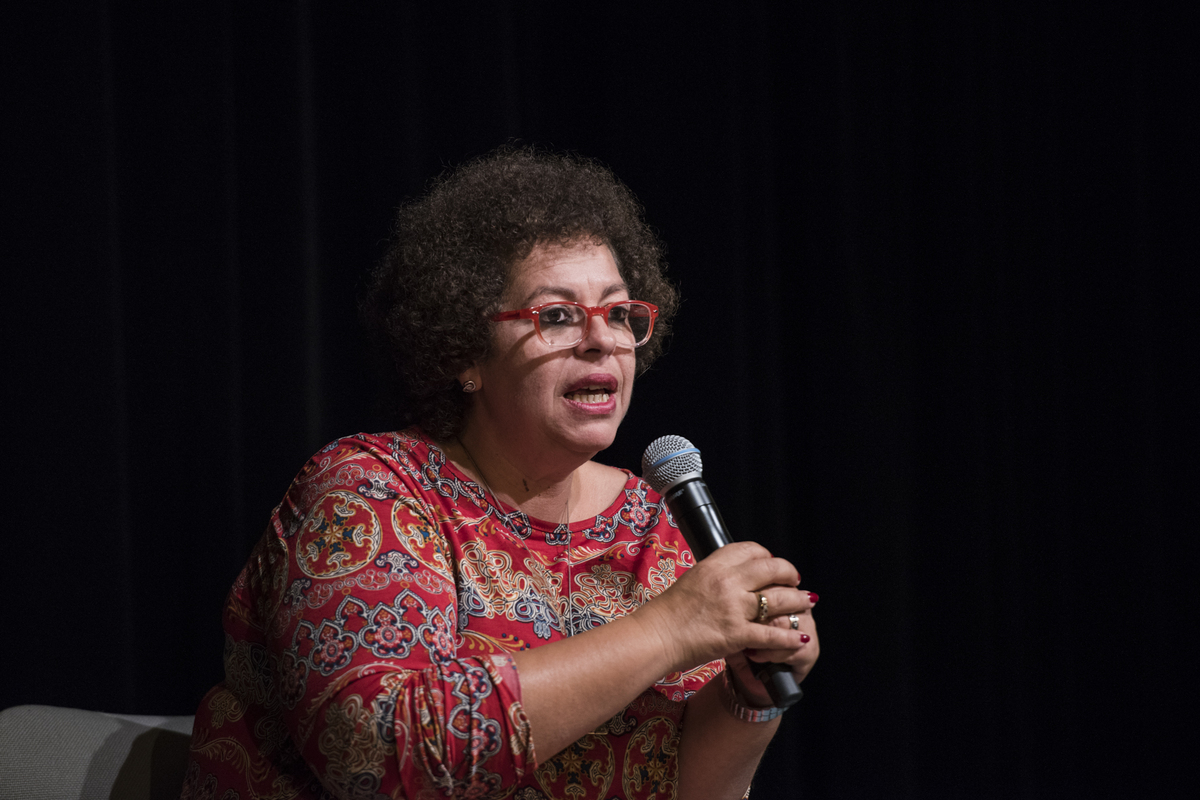Session 2 Remapping Our African Identity
Jihan El-Tahri
I am obsessed with the term “Sub-Saharan Africa”! Maybe it is because I come from the North of the continent and my African-ness is consistently questioned? Or is it because growing up as a Pan Africanist such a distinction felt counterproductive? Nevertheless, it is a phrase I embraced for decades until I dared question its authenticity and its divisive implications. Where did the term “Sub-Saharan Africa” come from since it never appears in colonial literature? What exactly are the contours of this “region” since it is not demarcated on any map? Is it a geographic location or is it a political construct? How come Mauritania is considered Sub-Saharan yet Sudan is not? Most importantly, how did we, as Africans, start adhering to the post-colonial remapping of our own spaces and identities? Questioning the origin of a simple term demonstrates the extent to which we need to re-examine the source and the reasoning of the knowledge we now take for granted. There might not be definitive answers to some of these questions, but trying to find out is the first step towards reassessing who we really are and how to circumvent many of the divisions on the African continent today. Most of what we know about ourselves.
About Jihan El-Tahri
Jihan El-Tahri started her working career as a journalist. Between 1984 and 1990 she worked as a news agency correspondent and TV researcher covering Middle East politics. In 1990 she began directing and producing documentaries for French television, the BBC, PBS and other international broadcasters. Since then she has directed more than a dozen films including the Emmy nominated The House of Saud, which explores the Saudi/ US relations through the portraits of the Kingdom’s monarchs. The Price of Aid, which won the European Media prize in 2004, examined who really benefits from the system of International Food Aid. Cuba: An African Odyssey, which recounts the untold story of Cuba’s support for African revolutions, has received multiple International awards. Her most recent feature documentary Behind the Rainbow, which examines the transitional process in South Africa, was released in 2009 and has since won various prizes. She is currently finalizing a 3 hour documentary provisionally titled Egypt’s Modern Pharaohs. El-Tahri has also written two books, The 9 Lives of Yasser Arafat and Israel and the Arabs: the 50 Years War published by Penguin. Jihan El-Tahri is also engaged in various associations and institutions working with African cinema. She has served as treasurer of the Guild of African Filmmakers in the Diaspora, Regional Secretary of the Federation of Pan African Cinema (FEPACI) and as an Advisor on Focus Feature’s Africa first Program. She is currently a Mentor at the Documentary Campus.
